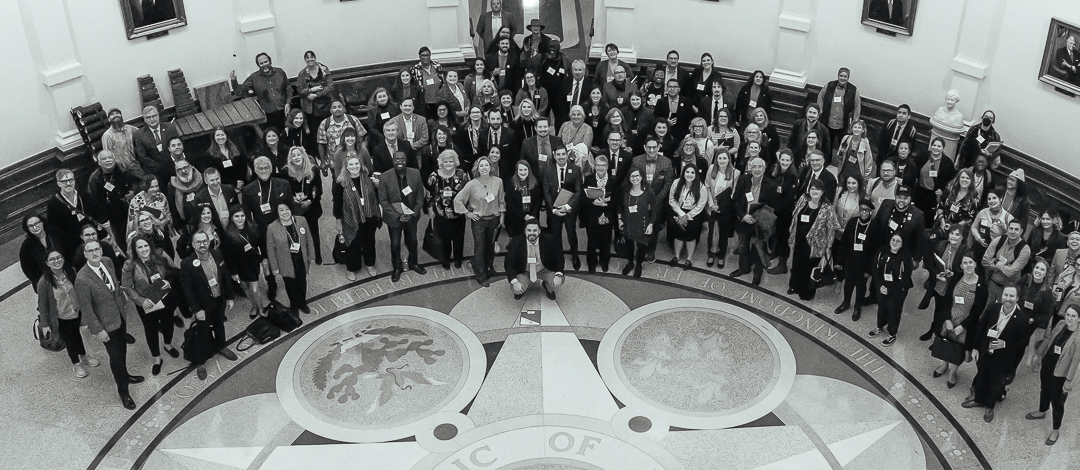Like the Texas Legislature, Texans for the Arts operates on a two-year cycle. That’s no coincidence: The Austin nonprofit’s mission centers on maximizing state support of the arts, so the odd-year legislative session is its crunch time.
This will be the first gathering led by Christopher Kiley, who took over as Texans for the Arts’ executive director when Ann S. Graham, the group’s leader for a decade, retired in late 2023. One of this year’s top priorities, Kiley says, is to land more money for the Texas Commission on the Arts, the state agency that provides grants and other backing for culture. The group wants the commission’s funding to grow from the current $17.9 million a year to $23.4 million. Kiley is quick to put that in perspective.
“The arts are undoubtedly a significant driver of tourism and economic growth in our communities large and small,” he says. “Last year, the arts industry alone generated $380 million in sales taxes. The return on the state’s investment (in the arts) is incredibly high.” When Kiley and his staff aren’t gearing up for the legislative session, they oversee an array of year-round projects—such as helping communities across Texas win their share of arts support from the state’s hotel occupancy tax.
Arts and Culture Texas: How did you find your way into the advocacy part of the arts world?
Christopher Kiley: I got my undergraduate degree in acting. Then I worked as a regional performer for a number of years. At some point, I decided I wanted to help support the field in an administrative capacity. I felt it was important that we had passionate people who understood the arts either running organizations or developing the resources. Ultimately, the road led me to leave New York and move to Lubbock and Texas Tech, which has an incredible arts administration program. It’s a master’s in fine arts.
Within the first couple of weeks I was in graduate school, Ann Graham, my predecessor, came to Lubbock to do an advocacy workshop. I was blown away! I had never considered there would be this beautiful intersection between the political realm, policy and the arts. I started as an intern with Texans for the Arts. When I graduated from Texas Tech, I moved to Austin and bothered Ann until she gave me a part-time job. I caught the bug and stuck with it, and here I am.
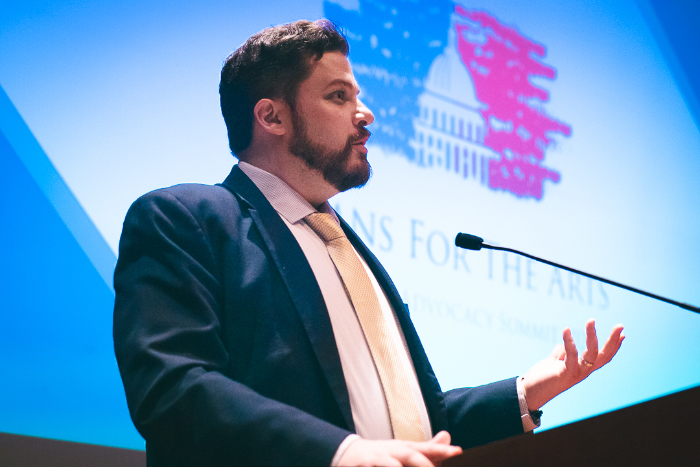
1 ⁄4
Chris Kiley, Executive Director of Texans for the Arts, speaking to advocates at the 2023 Texas Arts Advocacy Day in Austin. Photo by Matthew Blissard, Dreamboat Media.
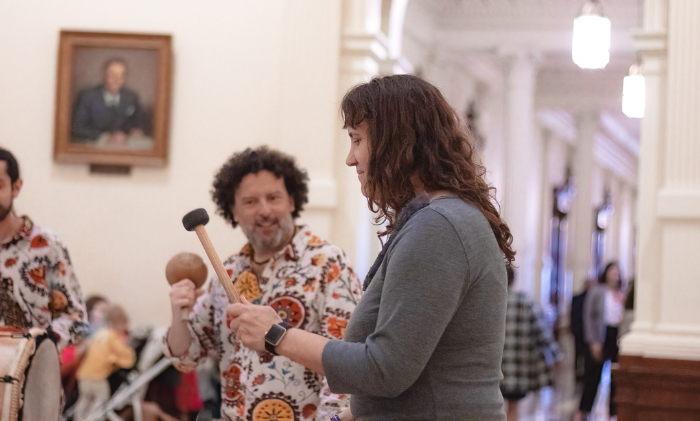
2⁄4
Austin-based musical group WACHE performing traditional Colombian Caribbean music in the Rotunda at the Texas State Capitol for the 2023 Texas Arts Advocacy Day. Photo by Matthew Blissard, Dreamboat Media.
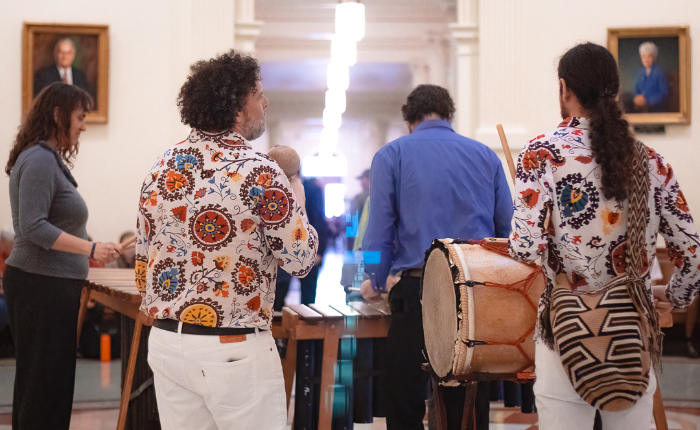
3 ⁄4
Austin-based musical group WACHE performing traditional Colombian Caribbean music in the Rotunda at the Texas State Capitol for the 2023 Texas Arts Advocacy Day. Photo by Matthew Blissard, Dreamboat Media.
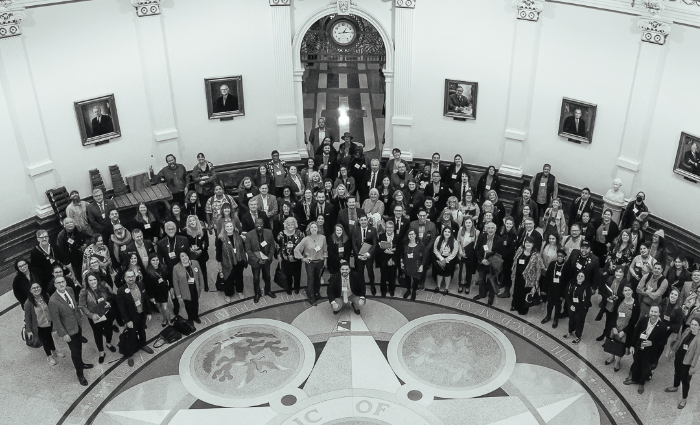
4 ⁄4
Advocates from all across the state in the Rotunda, celebrating their participation in 2023 Texas Arts Advocacy Day alongside the staff of TFA. Photo by Matthew Blissard, Dreamboat Media.
CK: We are launching a program called the Local Engagement Advocacy Directors program, or LEAD program. Our goal is to have a seasoned arts advocate in every legislative district across the state who can communicate the benefits of investment in the arts, both private and public, and help develop the next generation of arts advocates across the state.
ACTX: Looking further out, how would you like Texans from the Arts to develop?
CK: Our mission is to champion an unwavering public commitment to the arts. We’ve changed our mission statement to broaden the definition of public commitment beyond just money. We talk about the rights of artists to their intellectual property. We talk about a commitment to our artists that they are the bedrock of our cultural identities across an incredibly diverse state.
Last spring, we held a summit in Rockport where we got together to talk about artificial intelligence and generative A.I., and their impact on the arts. The technology is evolving so rapidly that it’s difficult to project the threats and opportunities. We’re not looking at it solely as a threat—we’re looking at it as an evolution of the way we use technology. There’s a whole new movement of using AI as a tool to create opportunities for artists to apply their craft in new ways. Our state legislature is becoming increasingly concerned about the A.I. issue as well.
CK: A lot of my thinking during my first year has been involved with, How do we engage our individual artists more? And how do we communicate just how important it is to advocate?
One of my favorite Texas quotes is from (former Governor) Ann Richards, who said, “If you’re not at the table, you’re on the menu.” It’s very important for us as an industry to recognize our collective power and engage in the democratic and legislative process. A huge part of my goal is to ensure that the field understands that every voice matters. The larger our coalition becomes—the more voices that are represented—the better we end up.
-STEVEN BROWN

